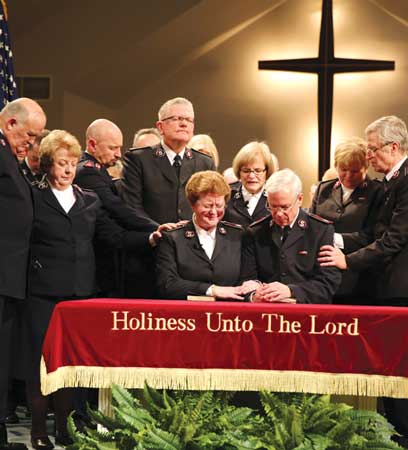BY DR. JACK ANDERSON –
The horrific events in our nation this week have been more than unsettling in the hearts and minds of most Americans. For the families and friends of the victims the pain is particularly personal and dreadful. Everyone, to some extent, has been stunned, shaken, and disheartened by the terrorism.
One of the difficulties in grieving through this event is that it is not over. We have not even calculated the tremendous loss of life among the original victims plus the many courageous rescue workers. Although the human loss is the paramount issue, we have sustained other losses: our sense of safety and security, our freedom to travel with relative ease, huge financial losses, and our lives have been disoriented with shock, fear and worry.
I mention these things only to highlight the first step in the process of grieving, which is to accept the enormity of the blow that has been dealt. Grieving will not undo any of the devastation, but it will help restore us to health and thus guide us to appropriate ways of reacting to the brutality.
Grieving through this is not going to be a quick process, nor should it be. Many people evaluate this as the worst single event in American history. At this time, however, we can make decisions about how we are going to deal with this in our own hearts and minds.
The following suggestions might help point the way to some initial responses to this long term process.
First, use this as an opportunity to draw closer to God. I heard a caller on the radio say that he had not been to church in over five years, yet today he went to pray for the victims’ families and for himself. This kind of event exposes our vulnerability and fragility in the world, and reminds us of our utter reliance on God. In this world of hatred and disregard for human life, we have a heavenly father to whom we can go for comfort and reassurance.
Secondly, use this time to draw closer to one another. This is an opportunity to express concern and care for our fellow citizens. Participating in prayer vigils not only gives us opportunity to express our concerns, but strengthens and unites our communities. The outpouring of help from all segments of society reminds us we are not alone, and that we are becoming a stronger society. Isolation can be the enemy of the grieving process, and we need to find opportunities for expression and dialogue. Talking really does help. It also allows the opportunity for sharing our faith with those who do not know the Lord. This also includes looking for practical ways that we may assist those directly affected by the violence.
Another response we can choose is to re-think our priorities in life. On the day of violence, I had several people comment to me in counseling sessions that their problems seemed suddenly insignificant in comparison to this huge atrocity. That may be a short-lived response, but this may in fact be a time for us the reevaluate how we are living. Am I fulfilling the purpose God has called me to? Am I reflecting the light of God’s love through my behavior towards others? Do I have hatred or prejudice in my own heart that needs to be cleansed? Does my behavior truly demonstrate what I profess as being my values and beliefs?
Finally, we may better proceed through this time of grief by affirming the foundations of our faith. We have a Savior who is well acquainted with grief, and who has given the Spirit of life to comfort us in times like these. Let us hold fast to that faith.











